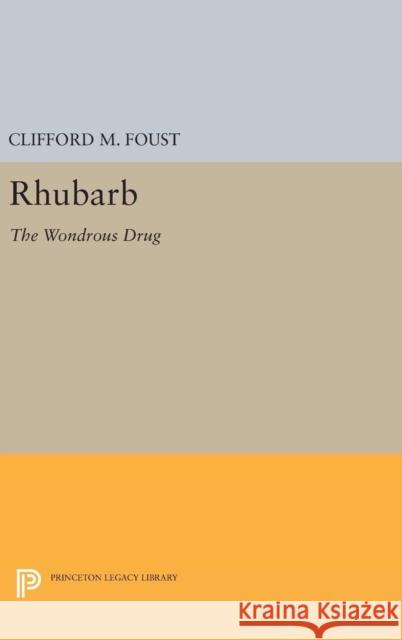Rhubarb: The Wondrous Drug » książka
Rhubarb: The Wondrous Drug
ISBN-13: 9780691630533 / Angielski / Twarda / 2016 / 394 str.
Rhubarb: The Wondrous Drug
ISBN-13: 9780691630533 / Angielski / Twarda / 2016 / 394 str.
(netto: 895,58 VAT: 5%)
Najniższa cena z 30 dni: 928,87
ok. 22 dni roboczych.
Darmowa dostawa!
An Asian plant with mysterious cathartic powers, medicinal rhubarb spurred European trade expeditions and obsessive scientific inquiry from the Renaissance until the twentieth century. Rarely, however, had there been a plant that so thoroughly frustrated Europeans' efforts to acquire it and to master its special botanical and chemical properties. Here Clifford Foust presents the remarkable efforts of the explorers, traders, botanists, gardeners, physicians, and pharmacists who tried to adapt rhubarb for convenient use in Europe. His is an intriguing tale of how humans and their institutions have been affected by natural realities they do not entirely comprehend. Readers interested in the history of medicine, pharmaceutics, botany, or horticulture will be fascinated by this once-perplexing plant: highly valued by physicians for its cathartic properties, rhubarb resisted revealing its active chemical principles, had many widely varying species, and did not breed true by seed. This history includes sections on the geographic and economic importance of rhubarb--which explain how the plant became a major state monopoly for Russia and an important commodity for the East India companies--and a discussion of rhubarb's emergence as an international culinary craze during the nineteenth and twentieth centuries.Originally published in 1992.The Princeton Legacy Library uses the latest print-on-demand technology to again make available previously out-of-print books from the distinguished backlist of Princeton University Press. These editions preserve the original texts of these important books while presenting them in durable paperback and hardcover editions. The goal of the Princeton Legacy Library is to vastly increase access to the rich scholarly heritage found in the thousands of books published by Princeton University Press since its founding in 1905.











